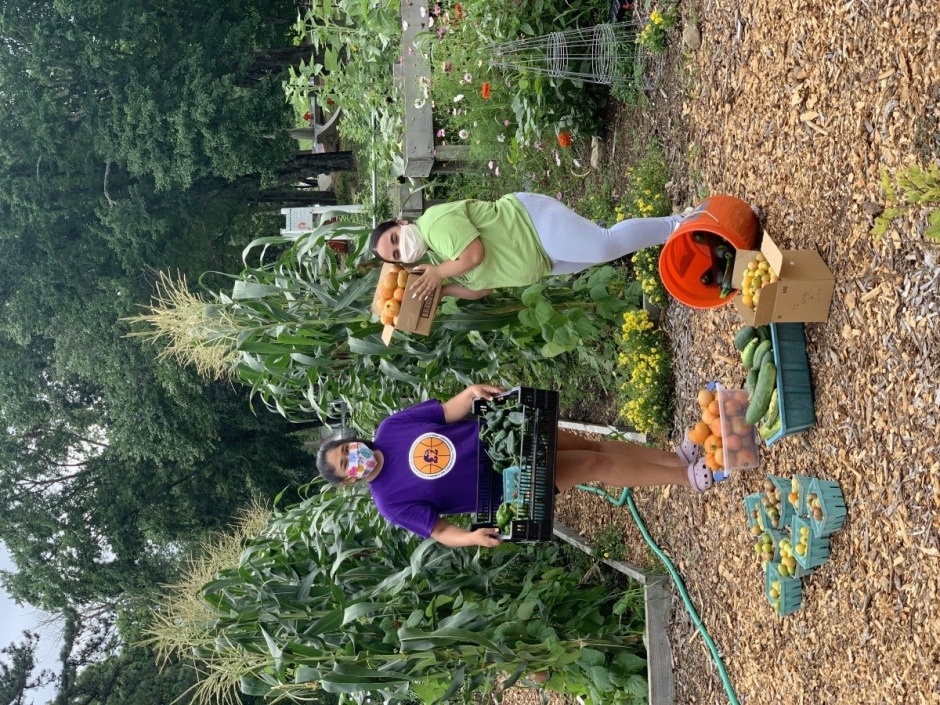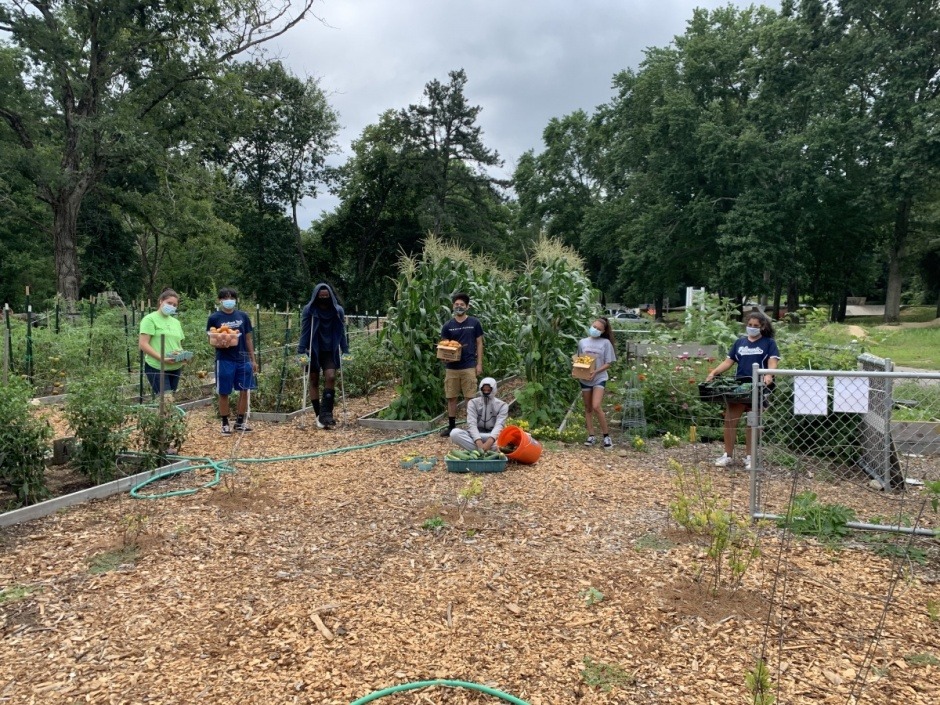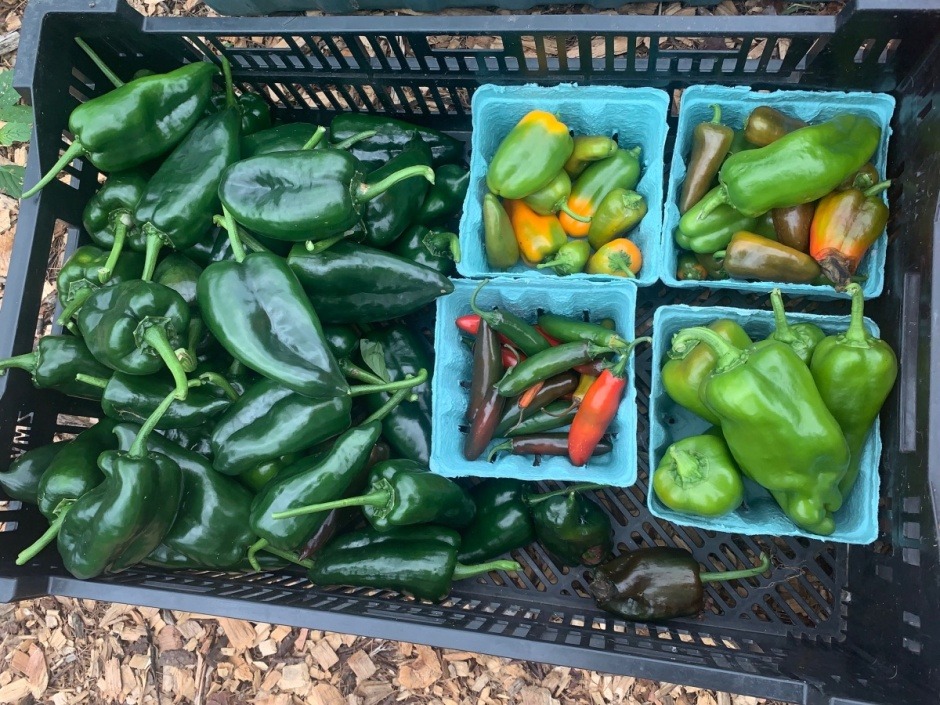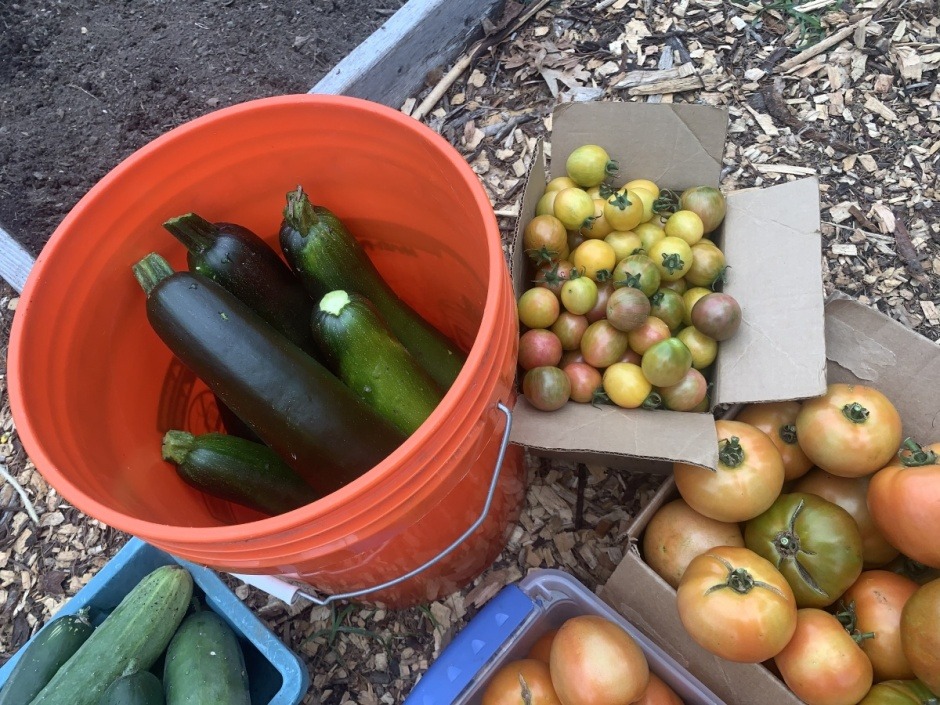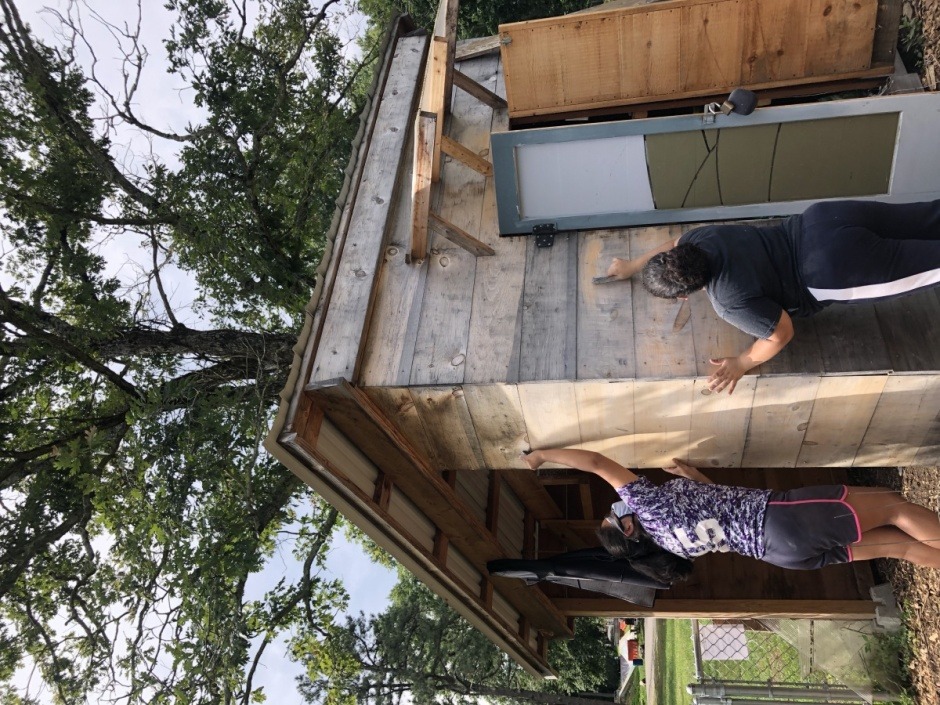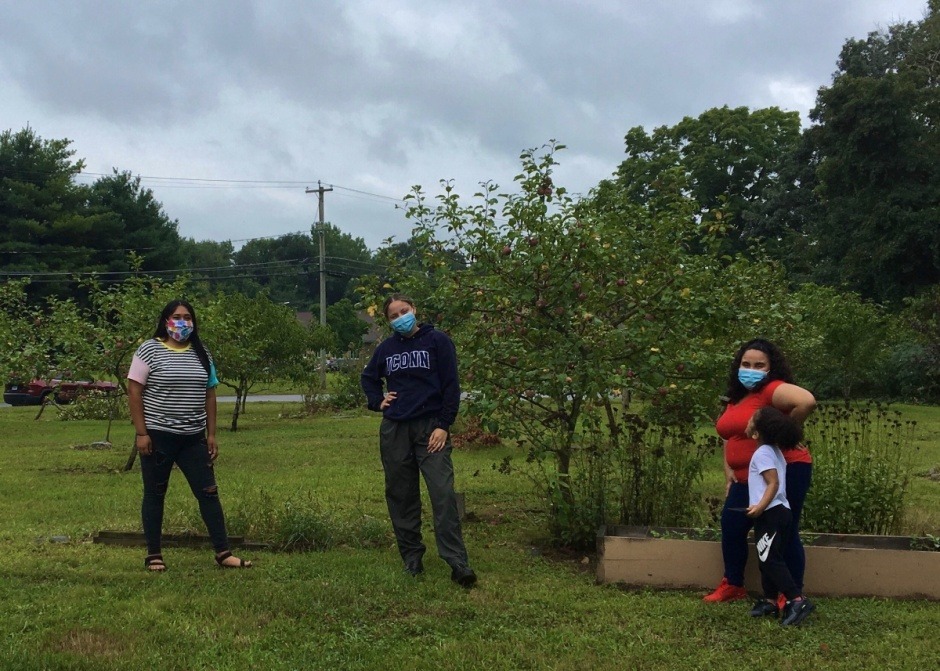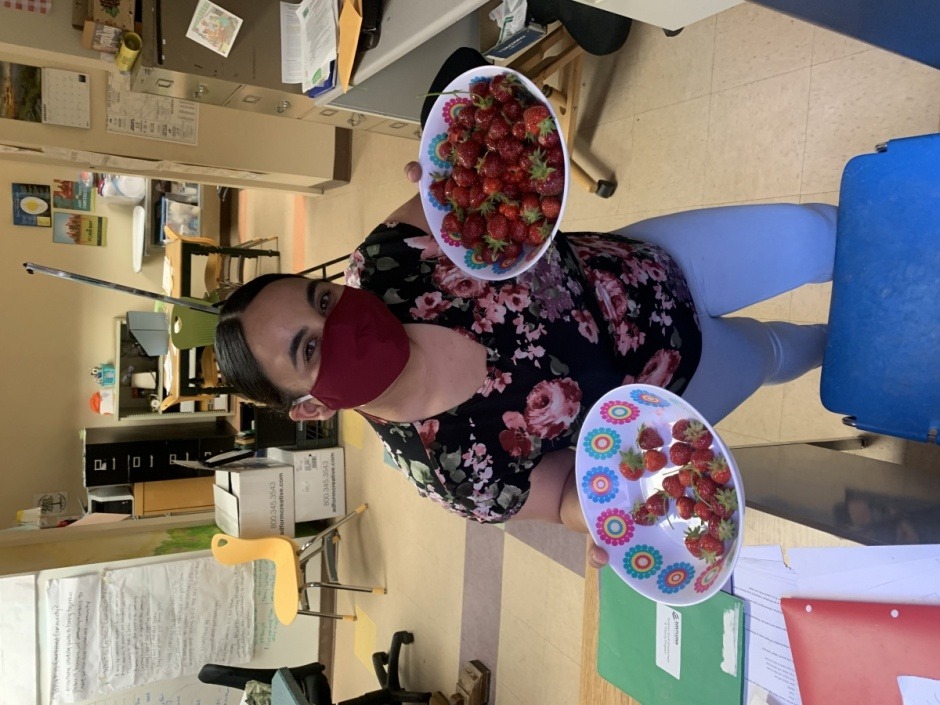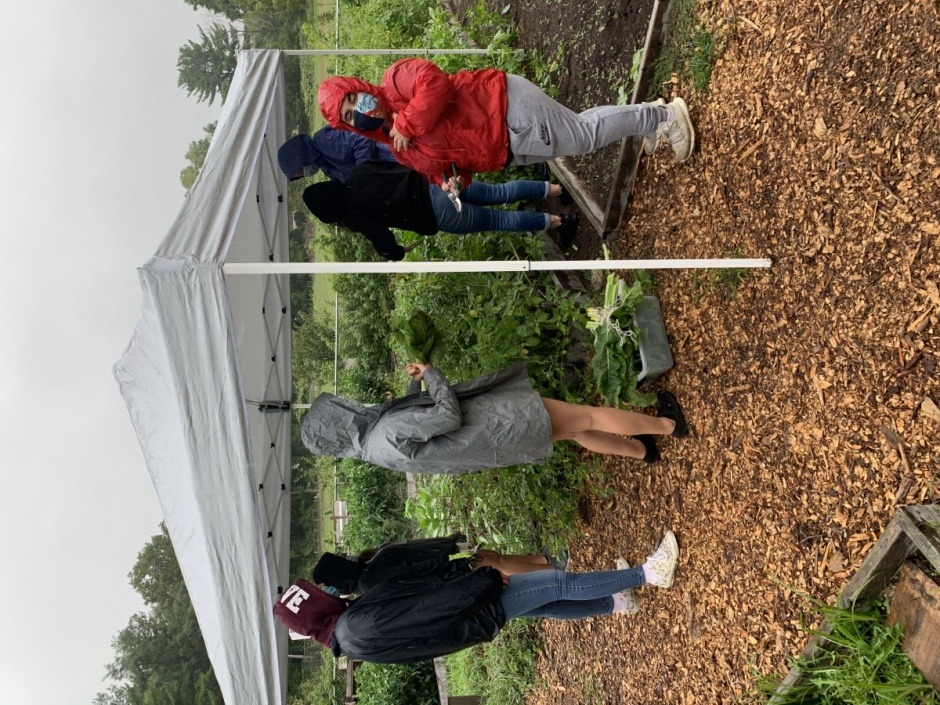GROW Windham received a grant in 2011 to create community gardens as a means both to empower local residents to grow their own food, as well as to foster a local culture that celebrates environmental stewardship, civic unity and responsibility, and healthy, local food. Specifically, Green Up will build raised beds at Terry Court, a low-income housing complex, and create a youth organic produce garden in a vacant lot next to Windham Youth Services, to be cultivated by the "Positive Steps" Youth Program (PSYP).
The Windham Youth CORE "Community Leadership Curriculum"
Briefly describe the project for which you seek funding::
The Windham Youth CORE (WYC) creates space for youth to build life- and career skills, and build their community at the same time. WYC members do this through youth-led "Community Enterprises" that support the development of a just and sustainable local food system. This project will support WYC members and program staff to build out their "Community Leadership Curriculum" into a "Toolbox", "Manual", and "Road Map" that will guide participants to become effective leaders. The framework for this curriculum was developed last June by the WYC. Reflecting on the characteristics of leaders whose shoes they would like to walk in someday, they outlined the "Values", "Enterprise Skills", and "Advocacy Training" required for effective leadership. This Curriculum is integrated with the "Certified Community" initiative, previously supported by a NEGEF Harvest Youth Grant, as it articulates the characteristics of "Certified Community" leadership. Specifically, this project will provide support for youth leaders, staff, and a curriculum consultant to develop the current framework into a Curriculum that includes a: TOOLBOX: of thematic workshops (about Identity, Community, the Food System, Social Justice); skill-building activities (Communication, Collaboration, Problem-Solving, Community Organizing); enterprise skills (growing, food processing, community engagement, media, education, entrepreneurship); and group-building activities and games; MANUAL: that outlines program structures, processes, and norms, mentor roles, and overviews of the different enterprises; and ROAD MAP: that lays out how participants grow through the program, including expectations for the different program tiers, and tools for goal-setting and personal and program evaluation. These components were inspired by a recent conversation among WYC youth leaders, in which they revealed the contexts necessary for them to grow as leaders: - Participating in workshops and activities that develop particular skills and sensibilities relevant to leadership, community advocacy, and their specific enterprises; - Working alongside adult mentors in real-world enterprises that build their food system; - Having space to independently work on their enterprises and chart their growth through the program. This project will integrate all three aspects of learning into a Curriculum that will support youth to develop the values and skills to become lifelong community advocates and change-makers.
Describe how your project aligns with our mission and guiding values:
This project aligns with NEGEF mission and guiding values in multiple ways. Regarding the mission, it "energizes and nurtures long term civic engagement" by providing youth the tools to become life-long advocates and change-makers. And it provides a framework for youth to build enterprises that support a more "healthy, just, safe and sustainable" local food system. The process of developing this Curriculum, and the youth enterprises more generally, are also rooted in the guiding values of "co-creation, fairness and equity", as the participants of the WYC have ownership over creating their own definition of and means to achieve success. In addition, the enterprises and the "Certified Community" initiative in which they are rooted, are aligned with the value of just transition, as they support a "local, living, loving economy" both within the program as well as the community. The Curriculum is embedded in the youth-led "community enterprises", which serve as a workshop for leadership and skill development; the enterprises are embedded in the community and local food system; and in turn, the community informs the curriculum, by providing mentors and examples of effective leadership, as well as emphasizing collective well-being. This cycle of shared learning, doing and intergenerational relationship-building provides a solid foundation for community development, in which youth are co-creators.
Describe how young leaders (25 and under) participate in this project::
The curriculum was outlined by youth, to support their growth as leaders. It is not only delivered through workshops and activities, but also put into practice through youth-led, real-world "Certified Community" Enterprises, such as their Thread City Family Garden, "Frog Fire/Fuego de Rana" hot sauce and Sofrito; Community Engagement Campaigns; Youth Education Programs; and WYC Media and Networking. The Curriculum provides youth a context to lead at many levels, as it makes space for them to articulate their own definition of leadership; design leadership-building activities; and build leadership skills while teaching each other as well as leading their own "Certified Community" Enterprises that support the local food system. Youth grow through program tiers - from the summer institute, they participate in internships, apprenticeships, and then are prepared to be enterprise leaders. The Curriculum will create a formal way for youth to articulate their growth and learning, so that they have a clear set of skills and credentials that can serve them in other contexts.
Please share anything else you think would help us understand this project::
Below are quotes from WYC leaders, about their leadership experience: I'm learning a lot all the time; I'm helping to create opportunities for other youth in my enterprise to learn along with me. I've never done a whole lot regarding media and it's cool that I get to build a new skill set and do it with other people. Now that I'm a leader, I can teach my group and hopefully one of them will step up and be the leader next time. I was always so shy. Once I started working with my mentor, I felt more comfortable - if that was only me, I would have been too shy, I wouldn't have known what to say. Your mentor teaches you, and you also do things on your own and learn by yourself, and then teach others what you know. I'm helping to expand the WYC as we create and start our businesses, which is a whole new section of the program. I'm helping grow and develop it in the early stages which is really cool.
GROW Windham
Can the Grassroots Fund use these photos for outreach purposes, including fundraising?:
Primary Issue:
- Food
- Living Economies
- Land & Water
- Environmental Health
Started working in:
2012
Purpose:
What type of geographic area is your group working?:
Urban
How many people in the group are considered “decision makers”?:
20
Community Size:
24,647
Does the group formally ask how core volunteers and decision makers self-identify across race/ethnicity, age, socio-economic level, education, etc?:
No
How many decision makers are of the age::
| Under 26 | 46-55 |
|---|---|
| 19 | 1 |
How many decision makers hold the self-identified gender::
| Woman | Man | Transgender, non-binary, genderqueer, or otherwise not forming to the gender binary |
|---|---|---|
| 10 | 9 | 1 |
How many decision makers hold the self-identified sexual orientation::
| Lesbian, Gay, Bisexual, Queer, or otherwise “not Straight” | Straight/Hererosexual | Do not know |
|---|---|---|
| 1 | 17 | 2 |
How many decision makers have the following levels of education received?:
| Some high school, no diploma | High school graduate, diploma or the equivalent (for example: GED) | Bachelor’s degree | Master’s degree |
|---|---|---|---|
| 16 | 1 | 2 | 1 |
How many decision makers identify with the following socioeconomic status?:
| Regardless of my employment status, I have access to income from other sources such as property (renting or selling), a profitable business, investments in the stock market, or other assets inherited, gifted or otherwise, which would enable me to afford a safe place to live, food to eat, and healthcare without working or relying on social or governmental supports for the foreseeable future. | Do not know |
|---|---|
| 1 | 19 |
How many decision makers identify with the following race and ethnic identity?:
| Hispanic, Latinx/of Spanish origin | White |
|---|---|
| 18 | 2 |
How many decision makers identify as a person with a disability?:
| No | Do not know |
|---|---|
| 1 | 19 |
If you have a website, what is the web address?:
http://www.growwindham.org
Group Links:
Newsletter:
Facebook:
http://www.facebook.com/GROWWindham
What are the “hometown” newspapers or other sources of news sources in your service area?:
Name Town State Willimantic Chronicle
Willimantic
Connecticut
Does the Grassroots Fund have permission to share stories, photos, or any other information posted on the above listed outreach channels?:
Grants Received In:
- 2011
Summary of Projects
Helpful Resources
-
American Community Gardening Association
-
Asset-Based Community Development Institute
-
Community Farm of Simsbury
-
Community Food Security Coalition
-
FRESH New London
-
Friends of Burlington Gardens
-
Hartford Food System
-
Holcomb Farm
-
Knox Parks Foundation
-
Northeast Organic Farming Association
-
Nuestras Raices
Submitted
